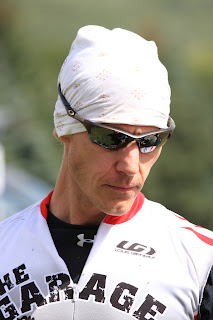Years ago (when i was a teenager) i read a series of books called 'Conversations With God' by Neal Walsh. They were quite interesting at the time and perhaps even formative for me in some ways. For unknown reasons i thought of the books yesterday and read through a few summaries of them, reminding myself of many of the messages they contain.
The spirituality in the book contains many ideas common in self-help literature and positivism based psychology, as well as many traditional spiritual disciplines such as buddhism. One thought that i like -that applies well to many aspects of life including high intensity training - is that of the sponsoring thought. Here are Neal's words:
The Sponsoring Thought – the thought behind the thought – is the controlling thought.
If therefore, you beg and supplicate, you lower your chances of experiencing what you are choosing because the Sponsoring Thought behind every supplication is that you do not have now what you wish.
That Sponsoring Thought becomes your reality.The only Sponsoring Thought which could override this thought is the thought held in faith that God will grant whatever is asked, WITHOUT FAIL.
When training or racing if your efforts come from a supplicating desire to succeed - a hope that one can achieve a certain outcome - then your 'sponsoring thought' is that you are not now succeeding. It is subtle but in reflecting on my own mindset as i approach both difficult intervals and difficult moments in long races i realize that when sponsoring thought is one of wanting to succeed, i often don't. Most of the time, however, i'm able to pursue my course of action with a determination and confidence - rising to the challenge of success with a sense of certainty in the outcome. It's not a hope that the outcome will come to be, but rather a firm belief in it. And in my own regular "Conversations with Gov", that seems to make all the difference.




























